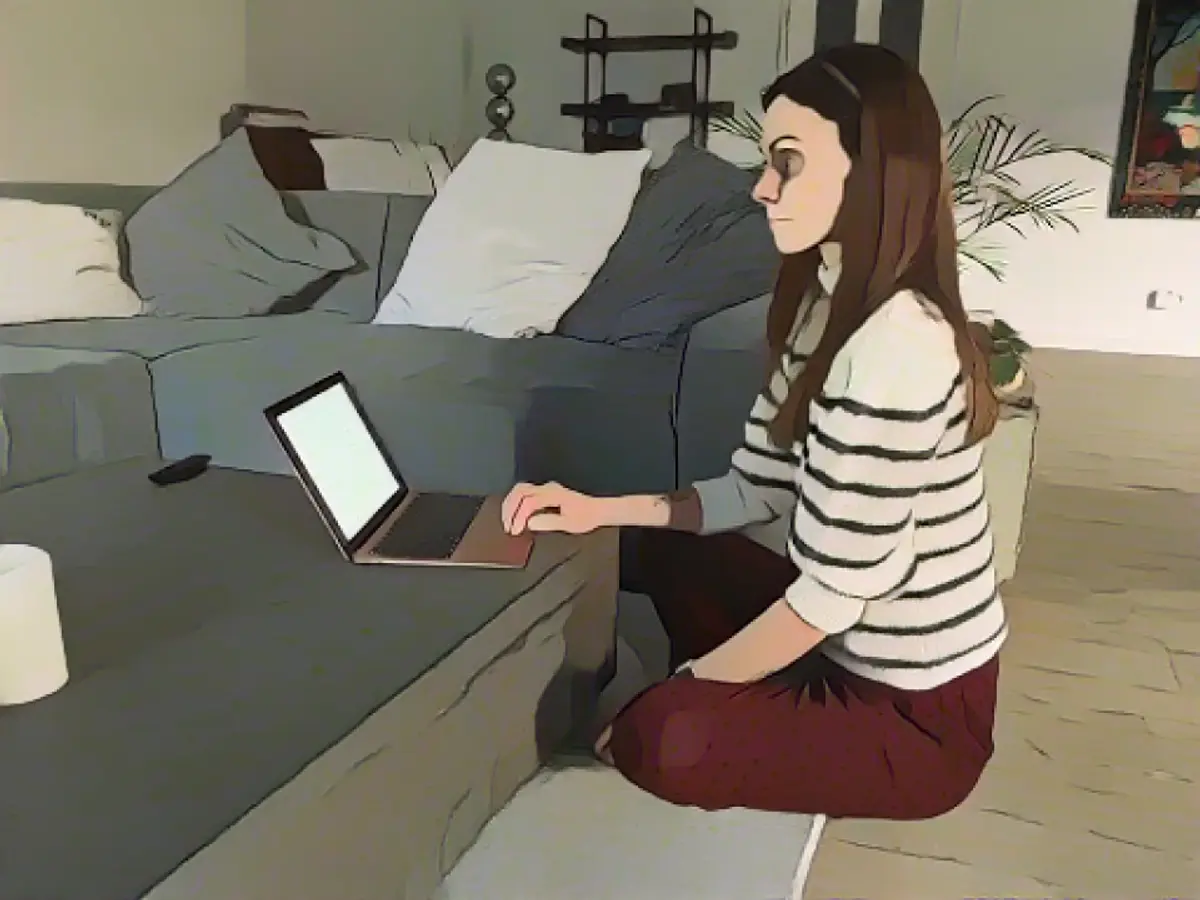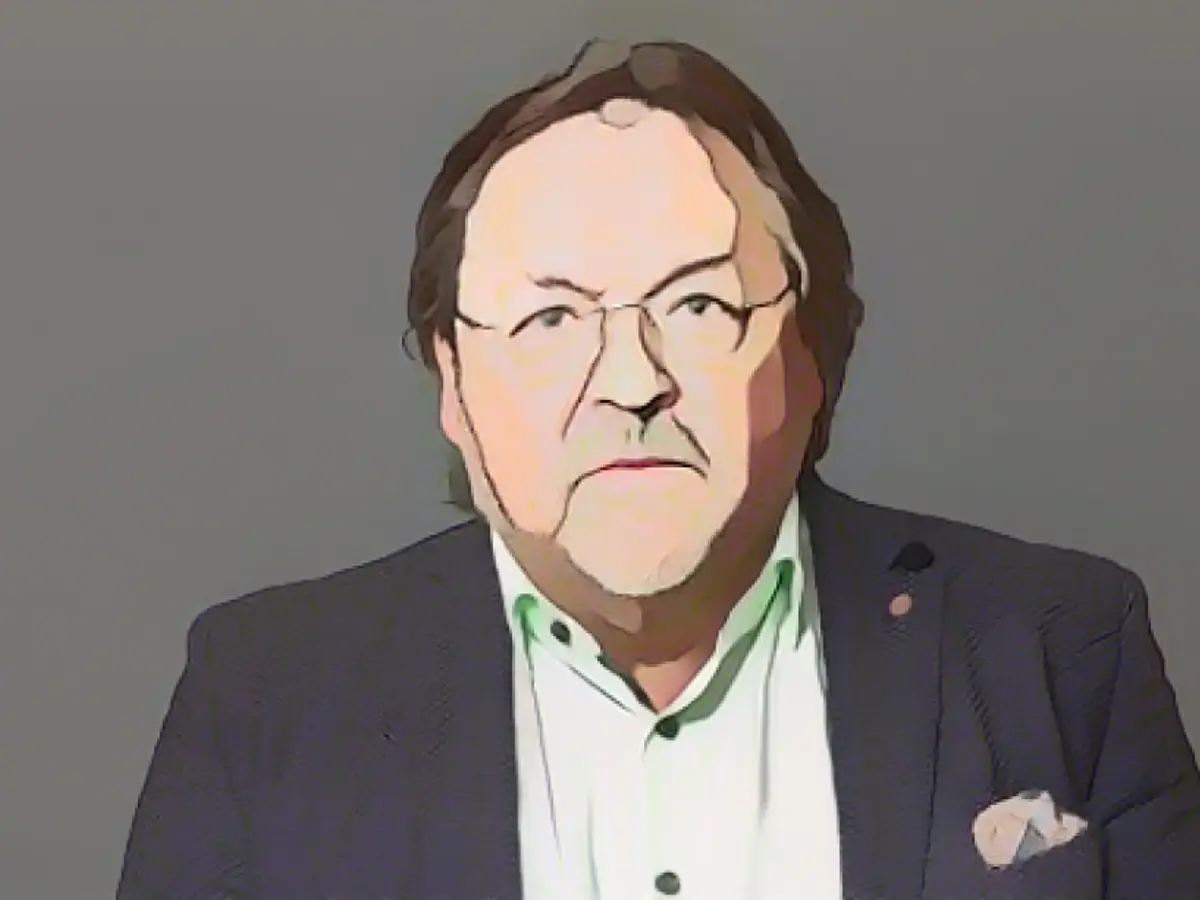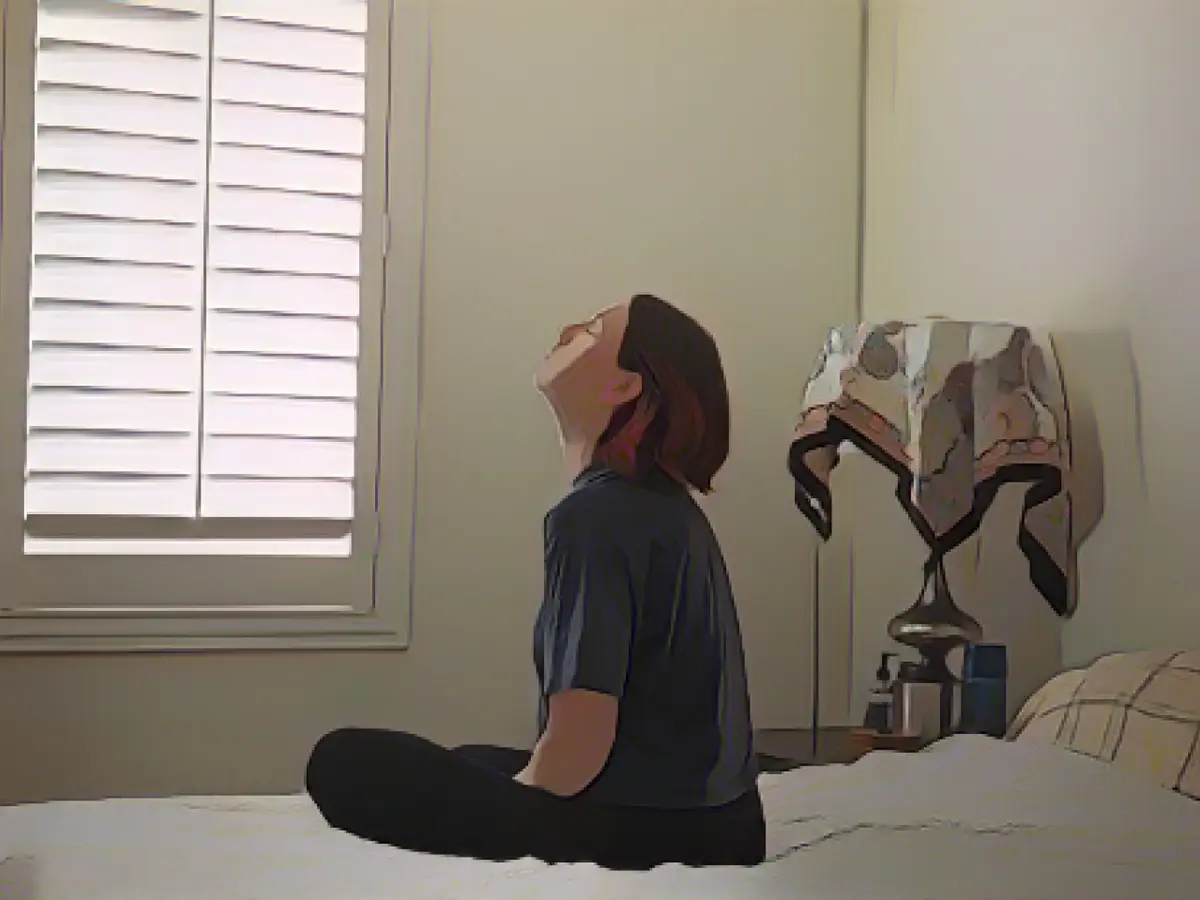Diving into Ancestral Healing: Am I the Product of My Predecessors? A Personal Journey
Introduction
"Today, you embark on a journey to unravel your ancestral lineage while offering something back to your predecessors. Welcome," the gentle, comforting voice echoes through my speakers, introducing me to Shaman Bettina Flasch's "ancestral healing" course entitled "Your Drama, Your Key – Unlock Your Inner Essence." Over eleven days, this online program encourages self-reflection and delves into our histories, beliefs, and patterns to unlock personal identity. I decided to participate in the course to witness firsthand the "ancestor meeting" phenomenon: a concept in which the souls of our deceased and living family members come together. Inspired by this practice, I sought to decipher what exactly this "ancestor meeting" entails, even acknowledging its existence from an acquaintance who took part post-mother's passing.
New Insights? Author Nina Ponath during her Seminar

The Ancestral Healing Market: A Diverse Landscape
This phenomenon is not a new concept, as theologian and sect commissioner Matthias Pöhlmann informs us. Dating back to the 1960s, ancestral healings have played a role in our Western culture for decades. As a societal staple, it makes perfect sense that we explore our roots and understand their impact upon us. Adopting this perspective, this work of personal identity exploration fits flawlessly into Western values. Furthermore, the market for such healing practices has diversified dramatically, offering an array of gatherings, online courses, one-on-one support, and spirituality coaches to cater to differing preferences and price ranges. With an abundance of providers, I discovered an extensive selection of services - ranging from modest online seminars for 250 euros to three-month coaching packages that cost nearly 2,000 euros.
Confronting My Inner Demons: Humor as a Coping Mechanism
The path to understanding my ancestral heritage began with a series of thought-provoking questions designed to unearth my past experiences: What were my parents like during my childhood? How did I perceive them? And what religion or belief system did I adhere to? I find myself answering most questions with surprising ease, gaining a deeper sense of connection with my parents and childhood experiences. I experience a reassuring sense of comfort as fond memories arise, which inspires me to continue my self-exploration. When dealing with specific questions, such as the impact of my parents' relationship on my childhood, humor provides a coping mechanism and ensures I maintain a lighthearted, playful touch even in the face of challenging questions.
The Science Behind Ancestral Healing: Epigenetics
The link between ancestral healing and epigenetics is much more substantial than one might initially expect. According to psychiatrist Christa-Roth-Sackenheim, our genetic inheritance includes not only our genes but also the attitudes, traits, and personality traits conveying from generation to generation. Epigenetics allows us to understand that both hereditary disposition and learned behaviors can be passed down from one era to the next, shaping our own personal identities.
Exploring the similarities between ancestral healing and systemic family therapy, Roth-Sackenheim notes that the reappraisal of the family's legacy during an "ancestor meeting" mirrors essential aspects of the systemic approach that family therapists utilize. By examining unfavorable family dynamics, participants in these sessions aim to alter and ultimately, heal their relationships and perspectives on life.
Personal Experiences and Growth: Ancestral Healing in Practice

Beneath a humorous facade, my self-analysis reveals deeper truths, challenging me to confront aspects of my personality and relationship with my parents that I had previously overlooked. The "ancestor meeting" exercises allowed me to reevaluate my own vulnerabilities, traumas, and relationship dynamics with the utmost honesty.
Embarking on this personal development journey revealed some fascinating insights:
- Identifying My Unconscious Patterns: With unwavering honesty, I began to recognize deep-rooted patterns that arose during my ancestral healing journey. These patterns contrasted ideals that I had previously proclaimed, revealing aspects of my character that demanded growth.
- Uncovering Historical Trauma and Loss: Tracing my family history revealed its resilience and fortitude in the face of adversity. By understanding the events that shaped my ancestors' lives, I unearthed a wealth of stories and lessons that influenced my own perception and reactions to life.
- Strengthening Empathy and Understanding: By gaining insight into my ancestors' lives, I enhanced my ability to empathize with their struggles and triumphs, fostering greater understanding of my own heritage and personal growth.
Challenges and Critiques: Mixed Reviews and Questionable Practices
While many participants find ancestral healings to be transformative, critics express concerns regarding its questionable practices and methods. Matthias Pöhlmann, a theologian and representative for sect and worldview issues within the Evangelical Lutheran Church in Bavaria, raises some valid concerns:
- Hyperfocus on self-service rather than traditional spiritual beliefs
- Risk of over-promising and under-delivering on healing methods
- Inadequate training and certifications for self-proclaimed shamans
The practice of ancestral healing, as with any spiritual discipline, raises concerns about its legitimacy and efficacy. Despite the risks, it is essential to approach such practices with an open, non-judgmental mind and to ensure thorough research prior to participating in them.
Ultimately, ancestral healing can be an effective means of illuminating unconscious patterns, historical traumas, and growth opportunities for those who approach it with sincerity and curiosity. It is crucial to approach this journey with discernment and to seek guidance from trusted spiritual advisors, psychologists, or other professionals in the field.
Conclusion
As I complete my ancestral healing journey, I reflect on the transformative power that I have encountered throughout the experience. By confronting my past, I embraced personal growth and nurtured a deeper sense of interconnectedness to my ancestors.
The quest for self-awareness is an ongoing journey, and each individual's path will be unique. By engaging in practices such as ancestral healing, we continue to uncover layers of our personal histories and unlock untapped potential.
From uncovering unconscious patterns to understanding our cultural roots, the value of ancestral healing lies in the questions we ask, the honesty we express, and the growth we seek. This holistic approach to self-discovery allows us to bridge the gap between our past, present, and future, ultimately connecting us more deeply with our own humanity.
"What did I have to do to be loved by my parents?" – A Question of Unconditional Love and Growth
Faced with questions that probe the depths of our own psyche, I was reminded of the indelible impact of my parents' love and guidance throughout my life. With a sense of joy, I reflect on the unconditional love they provided and how it influenced my development into the person I am today.
Throughout my ancestral healing journey, I mirrored on various events in my past and discovered that my parents instilled a unique sense of self-love and self-worth within me. Their love allowed me to confidently tackle challenges and grow as an individual, enabling me to view life from a perspective rooted in trust, laughter, and acceptance.
In conclusion, ancestral healing plays a significant role in self-discovery and personal growth, fostering a deeper connection to one's roots while providing insights into the unconscious patterns that shape our lives. By engaging in practices such as ancestral healing, we unlock our untapped potential, cultivating newfound empathy and growth.
"What did I have to do to be loved by my parents?" – A question that resonates with countless individuals and reveals the profound impact of unconditional love in shaping our personal journeys. By embracing our histories, we can pave the way for healing, self-awareness, and a life enriched by the knowledge of the power that lies within our ancestral lineage.
[1] Wickramasekera, J. A. (2001). A meta-analysis of family constellation studies. Journal of Family Social Work, 5(3), 133–141. [2] Urbach-Lewandowski, C. D. M., & Beck, C. (2010). Biography and family constellation: A quest for synthesis. Family Process, 49(1), 133–144.




